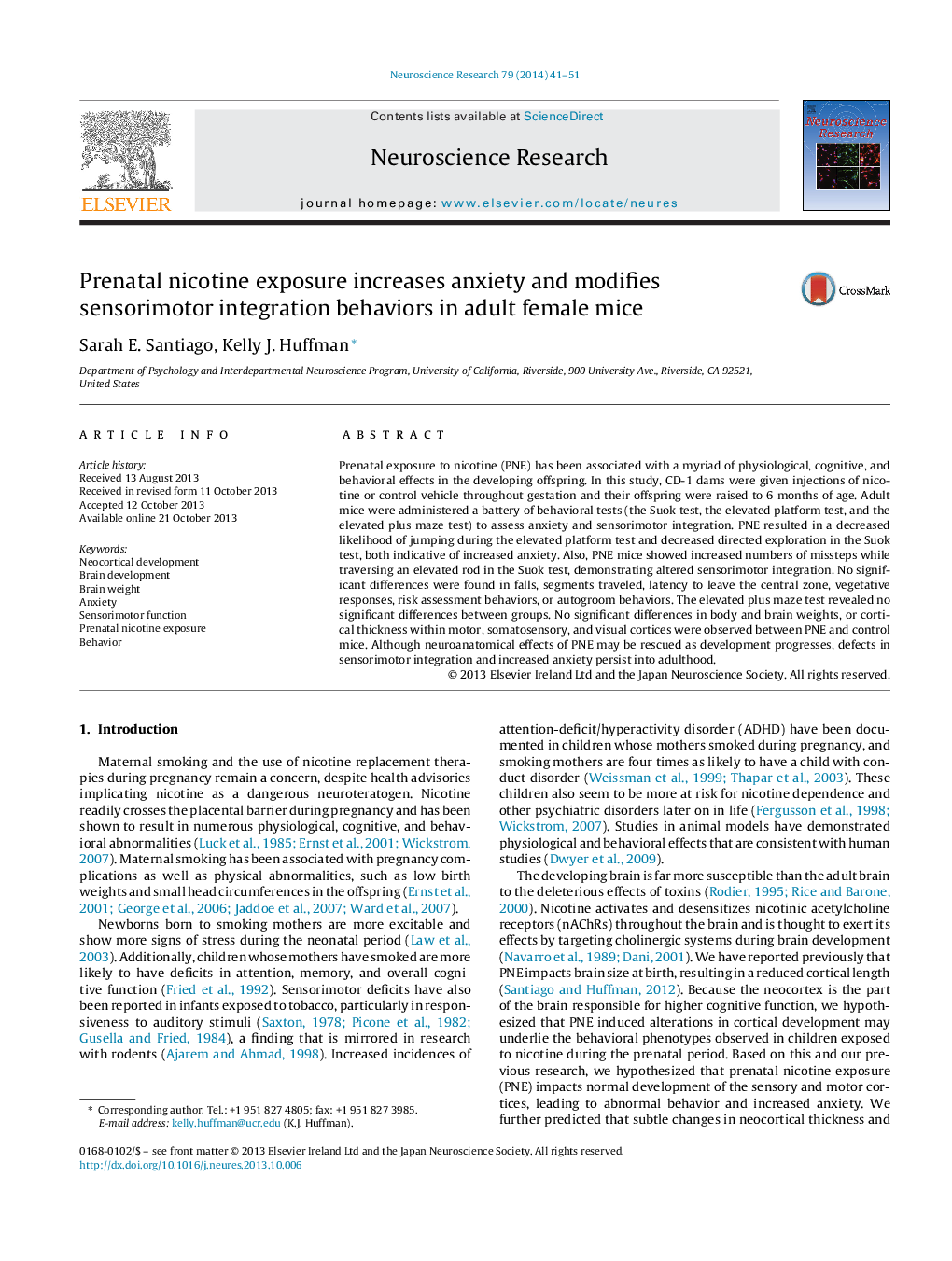| Article ID | Journal | Published Year | Pages | File Type |
|---|---|---|---|---|
| 6286326 | Neuroscience Research | 2014 | 11 Pages |
Abstract
Prenatal exposure to nicotine (PNE) has been associated with a myriad of physiological, cognitive, and behavioral effects in the developing offspring. In this study, CD-1 dams were given injections of nicotine or control vehicle throughout gestation and their offspring were raised to 6 months of age. Adult mice were administered a battery of behavioral tests (the Suok test, the elevated platform test, and the elevated plus maze test) to assess anxiety and sensorimotor integration. PNE resulted in a decreased likelihood of jumping during the elevated platform test and decreased directed exploration in the Suok test, both indicative of increased anxiety. Also, PNE mice showed increased numbers of missteps while traversing an elevated rod in the Suok test, demonstrating altered sensorimotor integration. No significant differences were found in falls, segments traveled, latency to leave the central zone, vegetative responses, risk assessment behaviors, or autogroom behaviors. The elevated plus maze test revealed no significant differences between groups. No significant differences in body and brain weights, or cortical thickness within motor, somatosensory, and visual cortices were observed between PNE and control mice. Although neuroanatomical effects of PNE may be rescued as development progresses, defects in sensorimotor integration and increased anxiety persist into adulthood.
Keywords
Related Topics
Life Sciences
Neuroscience
Neuroscience (General)
Authors
Sarah E. Santiago, Kelly J. Huffman,
